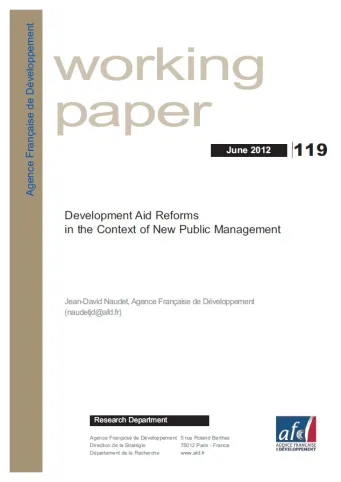Share the page
Development Aid Reforms in the Context of New Public Management
Published on

The purpose of this article is to analyse reforms to the international development aid policy based on the concepts of New Public Management. Three principles are particularly discussed: the segmentation of development policy implementation, the growing concern for accountability, and the establishment of performance-based management systems. The analysis of developments in official development assistance clearly shows that New Public Management principles are being applied to aid policies. Yet the distinctive characteristics of aid – difficulty to define performance, extreme heterogeneity of results, systematic collective responsibility, disconnection between those who pay for policies and those who benefit from them, absence of global regulation – make it an inappropriate example of the application of these management principles. As a result, a number of implementation difficulties appear as challenges for the future of aid policies.
Useful Information
-
Authors
-
Jean-David NAUDET
-
Edition
-
119
-
Number of pages
-
34
-
ISSN
-
1958-539X
-
Collection
-
Working Paper
-
Other languages
